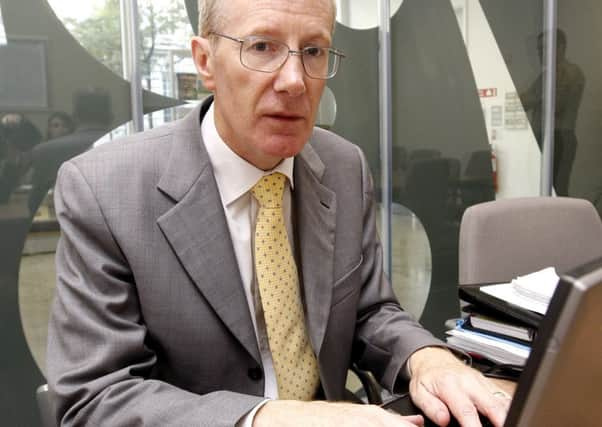Extra £150m for broadband secured in DUP/Tory deal will rebalance economy in the North, says Campbell


The East Derry DUP MP made the comments at Westminster on Tuesday during a debate that focused on “balancing the public finances” throughout the United Kingdom.
During the debate Mr. Campbell referred to the £1 billion package recently secured from London through his party’s ‘confidence and supply’ agreement with the minority Tory government.
Advertisement
Hide AdAdvertisement
Hide AdThat £1 billion package in extra money for the North, which will be forthcoming over the next two years provided the DUP votes through Tory budgets and money and Brexit bills and supports British Prime Minister Theresa May in confidence motions as promised in the parties’ recent accord, includes money for investment in telecoms infrastructure. Specifically, the Conservatives have pledged £75 million a year over the next two years to help provide ultra-fast broadband across the North.
Mr Campbell described this as “an example of effective and pragmatic expenditure” and said it was “a good idea to have investment in an area of the UK such as NI, where there has been high dependency on the public sector, in an effort to reduce the debt that is due to NI, by the creation of private sector finance and private investment and thus better investment opportunities and more jobs.”
He also suggested it would be “a good project for the rest of the United Kingdom to follow”.
Conservative MP Mark Harper, who initiated the debate, agreed with the East Derry MP
Advertisement
Hide AdAdvertisement
Hide Ad“One of the things that we set out in our manifesto, and that the Chancellor [Philip Hammond] set out in the House of Commons, is our plan to invest across the United Kingdom in infrastructure such as broadband, to help the economy and businesses to be more productive,” said the former Tory chief whip.
“That is how to raise tax revenue, grow the economy and create the jobs that enable us to spend money on our public services,” he added.
The outgoing NI Executive’s Economic Strategy was also committed to growing the private sector locally claiming its comparatively small size helped contribute to a very large fiscal deficit.